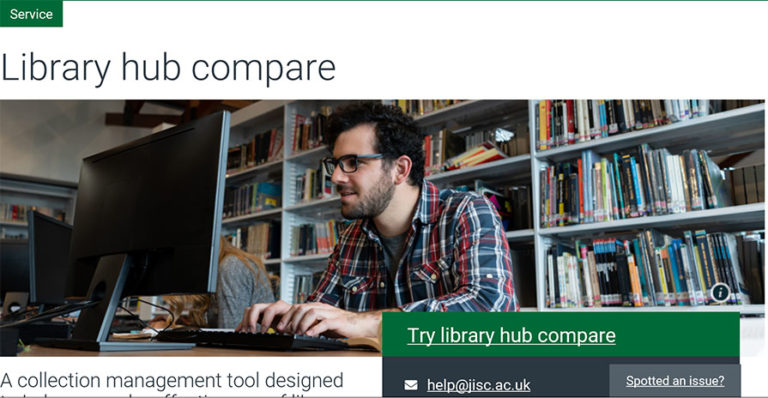The National Bibliographic Knowledgebase (NBK) is a search site that allows for searching for library materials across the UK. Known as a union catalogue, it allows for searching for a book or journal across all member libraries at once.
The site is made up what was formerly the COPAC (originally an acronym of Consortium of Online Public Access Catalogues) and SUNCAT (the Serials Union Catalogue) search sites. COPAC was a site that allowed you to search all member libraries for books, and SUNCAT was the same, but for journals.

COPAC and SUNCAT were both regarded as very useful research tools. Although they were used primarily by those working in the library sector, they could be used by anyone who knew about them, for free. They would tell you which book or journal was held at which library, and a decision could then be made on how to consult the title. You could visit the library yourself or library staff might be able to order the book via an inter library loan.
They were also a good way to find obscure and less-used material, especially given the nature of the some of the libraries that were members, such as smaller, specialist research libraries. COPAC could help with things like finding theses held in libraries and unpublished works.
It was decided to move the two existing sites, COPAC and SUNCAT, onto one new site. It made sense to have all titles available through one, more accessible, site – the NBK – as part of wider plan to make library materials more accessible.
This became known as Plan M. This is a plan, run by the Joint Information Systems Committee (JISC), to make information and data easier to find in the UK. The M stands for metadata.
For the NBK itself, after behind-the-scenes work, planning and testing, the new site was launched in early 2019. With this new site, all book and journal title records can now be found in one place. There are three parts to the new site: Library Hub Discover, Compare, and Cataloguing Service.
Discover is the search function of the site and the part most likely to be heavily used and the one to be used by anyone carrying out searches for titles.
You can search by author, title, subject publication date and more, and you can conduct advanced searches. The advanced search allows you to carry out quite specific searches and narrow down what you are looking for.
The results on the new site will provide you, in most cases, with a full catalogue record: author, title, publication details, subject headings and in many cases, a summary of the contents. A list of libraries where the book is held also appears. The same also applies to journal titles. You can then contact the library where the item is held and arrange to view it, as was the case with COPAC. The NBK is also helpful in that it can help library staff locate items so they can request titles on inter-library loan, as was the case before also. The new site has fuller, more accurate serials data too.
The cataloguing service is there primarily to help library professionals. This allows users to log in and look at and download records. Having access to this data can help other libraries with their cataloguing process.

Library Hub Compare is there for to be used for strategic planning and organisation for librarians.
The NBK does have a much more up-to-date, user-friendly look and is intuitive to use.
The process of adding The National Archives’ library catalogue to NBK was relatively straightforward. The National Archives’ library had already added its records to COPAC in 2013, and the records for its journal titles were available on SUNCAT shortly afterwards. It was a fairly simple process involving files being transferred from one server to another. The same had been true of the move to SUNCAT.
We were contacted about moving our records to the NBK in 2018. Again, it was a relatively straightforward process. The process was primarily transferring data from one server to another, and other information from us being made available.
With the data transfer set up initially, this process has continued with updates being sent from The National Archives to the NBK on a regular basis. This means the holdings that The National Archives’ library has listed on the NBK are up-to-date.
The Joint Information Systems Committee (JISC) offered updates on the overall move to the NBK and the new service with blogs and updates on developments, such as explaining new features and focusing on the latest libraries to be added to the site. These pieces could be interesting in themselves with brief descriptions and histories of member libraries.
There are benefits for contributing libraries, namely the ability to log in and use the cataloguing and compare services. But perhaps the greatest advantage of being a part of the NBK is the chance to give your library collection greater exposure to what is potentially a wide audience. The National Archives Library catalogue is one of the approximately 225 library collections now available through the NBK.
The National Archives Library is an open access library containing approximately 65,000 volumes. It acts as a research library for the wider archive and is open to both staff and the general public. It has a very useful collection on a wide range of subjects, including history, genealogy, local history and much more.
The NBK points to the future of library catalogues in a period where change is accelerating. The NBK allows for a wider range of catalogue records that cover a growing number of record formats, such as electronic books.
Library Hub Discover currently contains 45,662,486 records created from 122,165,229 records. This figure is growing all the time.